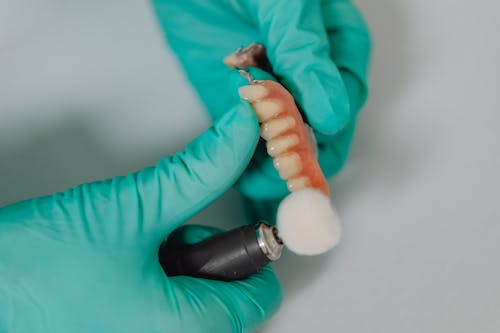Understanding Dental Implant Infection: Causes, Symptoms, and Prevention
Dental implant infection can have serious consequences if not managed promptly. This article explores the various causes behind such infections, how to recognize the symptoms, and effective preventive measures. Understanding these factors can help patients maintain their oral health and avoid complications related to dental implants.
What is Dental Implant Infection?
A dental implant infection refers to the inflammation and infection that can occur in the tissues around the dental implant. This condition can arise due to various factors such as improper placement, poor oral hygiene, or even pre-existing periodontal diseases. Dental implant infection manifests through swelling, pain, and sometimes even pus formation around the implant site. It’s crucial to address any signs of infection promptly to prevent further complications. Dental implants aim to replace missing teeth, and understanding dental implant infections is essential for a successful healing process. Regular check-ups with a dental professional can ensure that any developing infections are intercepted early on.
Causes of Dental Implant Infections
There are multiple causes of dental implant infection that patients should be aware of. Firstly, surgical errors during the placement of the implants can lead to improper integration into the jawbone, increasing the risk of infection. Secondly, inadequate aftercare, including insufficient oral hygiene, significantly contributes to the development of dental implant infection. Additionally, systemic conditions such as uncontrolled diabetes or autoimmune diseases can hinder the healing process, making individuals more susceptible to infections. Lastly, tobacco use and certain medications can also interfere with blood circulation, complicating the outcome of dental implant surgery. Addressing these causes can help mitigate the risks associated with dental implant infection.
Symptoms to Watch For
Recognizing the symptoms of dental implant infection is vital for timely intervention. Common signs include persistent pain around the implant site, swelling, and redness in the surrounding tissues. Patients may also notice unusual discharge or a bad taste in their mouth associated with the area of the implant. In some cases, individuals might experience fever or general malaise as the body responds to the infection. It’s essential to communicate any unusual changes to one's dentist immediately, as these symptoms can escalate if not treated properly. Early detection of dental implant infections can lead to more conservative treatment options.
Preventive Measures for Dental Implant Infection
Effective prevention of dental implant infection requires diligent oral hygiene practices. Patients should brush and floss regularly, focusing on the area around the implant to ensure cleanliness. Professional cleanings should be scheduled at regular intervals to maintain optimal oral health. Moreover, after implant surgery, following the surgeon's post-operative care instructions is crucial for healing. Patients should also refrain from smoking, as tobacco can severely impact blood flow and increase infection risk. Using an antibacterial mouthwash may also help keep the implant site free from harmful bacteria. Prevention is key to avoiding the complications associated with dental implant infections.
Treatment Options for Dental Implant Infection
If a dental implant infection does occur, treatment options are available to manage the condition effectively. Initial treatment often involves the use of antibiotics to combat bacterial infection. In cases where infections do not respond to medication, surgical intervention may be necessary to remove infected tissue and clean the implant site. Failure to address a dental implant infection promptly can lead to implant failure, necessitating removal and additional surgical procedures. Regular follow-ups with a dental professional are vital after treatment to ensure that healing is progressing appropriately.
Conclusion: The Importance of Awareness
Awareness of dental implant infection is crucial for anyone considering implants or currently living with them. Understanding the causes, symptoms, and preventive strategies empowers patients to take an active role in maintaining their oral health. Through proper care and frequent consultations with dental professionals, individuals can reduce the likelihood of complications related to dental implant infections. Therefore, fostering a proactive approach not only helps in maintaining implants but also enhances overall quality of life.
